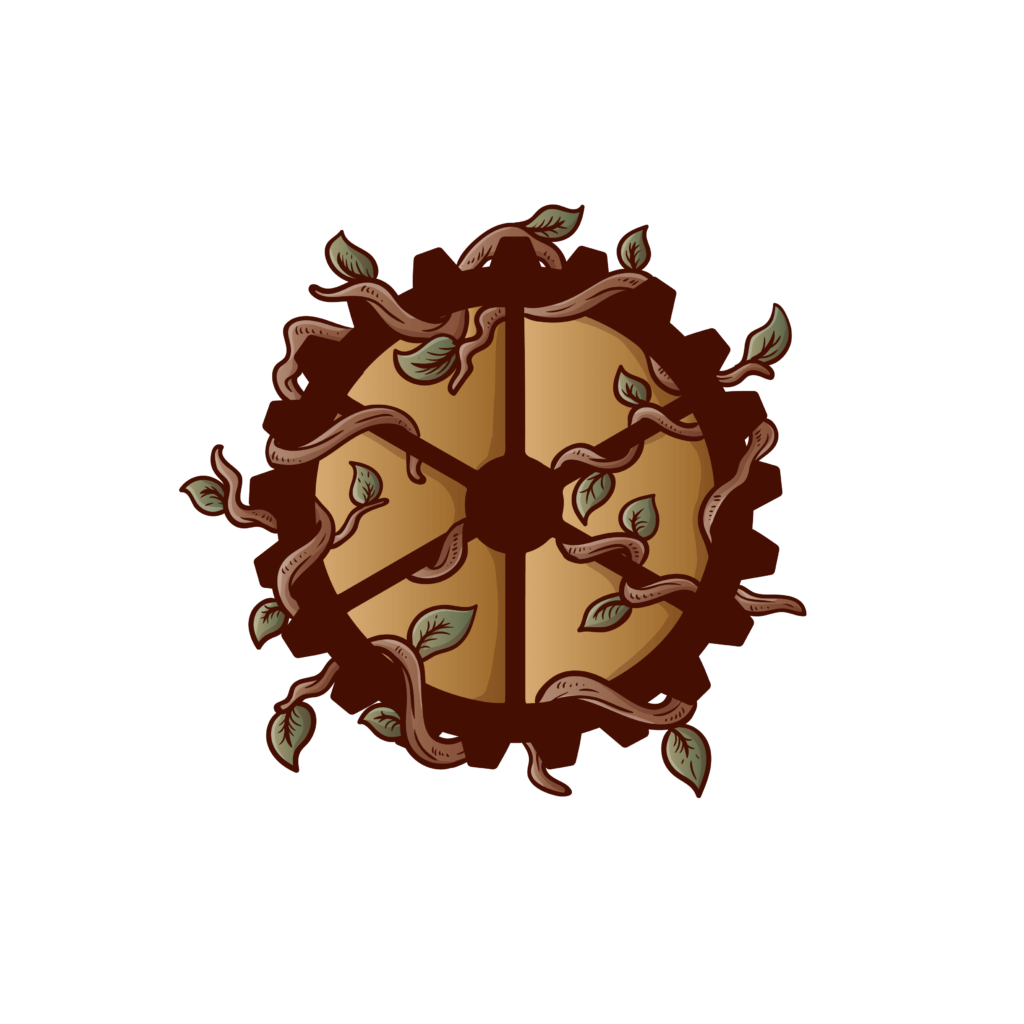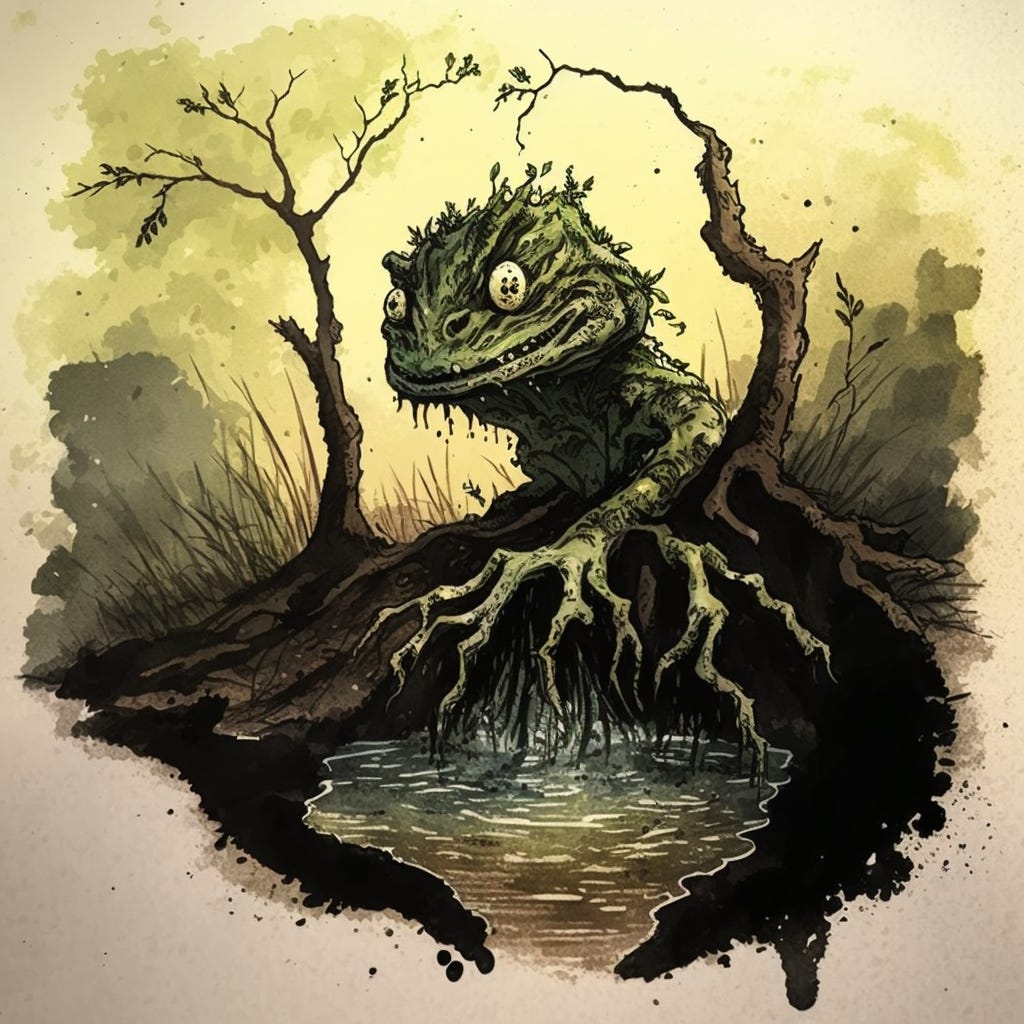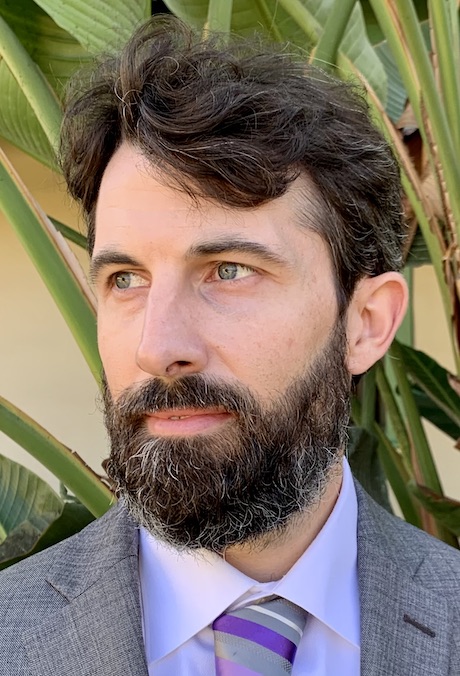A.B. Greene on “The Roots of Discontent”
A.B. Greene Q&A
A.B. Greene’s The Roots of Discontent is a whirlwind of the weird, the sexual, and the mystical — all set against the backdrop of a competition for a lucrative new construction contract. It’s an endlessly entertaining read you won’t soon forget. Co-creator/co-editor Robert Frankel spoke with Greene about how he came up with this story, body horror, and his obsession with hydration.
This interview has been edited for clarity and length.
Where did the idea for this story come from, and how did you develop it into the piece we know and love?
[Creator/co-editor] Ben gave me a prompt about a party gone wrong. As I was thinking about it, I realized I had no idea what I was going to write and fell into a hole of depression. At the time, I was preparing for a solo visit to Lake Tahoe and on the way was listening to the audiobook of The Overstory, by Richard Powers. That put me in the tree headspace. And then the environs of Tahoe — being in the forests and walking around — only put trees even deeper into my mind.
I kept going back to “Wash Away the Plague,” the first story I wrote for Ballads, which was about the aftermath of the Great Quake and the Blue Plague that followed. It felt like there was more there. I thought it’s such a cool thing the rebuilding of the city is what gets everyone sick, and I started thinking about the industrialists who would be in charge of that rebuilding. That meant money. And that means contracts — how does one win that contract? What’s the competition like? That’s where the party came in, as some sort of a stage where someone would gain favor. But I knew we wanted some sort of an Uncanny, and I think I just wanted some, like, weird shit. It felt natural of someone who is a builder to have a relationship with trees if they’re from a really old family. Perhaps they’ve forgotten the roots literally of where they came from. And that to me felt exciting and cool.
One of the many elements I particularly enjoyed is this synthesis of the high and the low — the profound and the profane.
There’s something about being flowery and intellectual mixed with profane and crass. I can’t take myself too seriously, or anything too seriously. I think that’s why I love what most people call “shitty horror movies.” In a way, I think they can say way more than “high art” a lot of times, or at least I think they’re more successful at it. I think I’m trying to find that same kind of sensibility in my own writing.
Dreues, the main character, is the story’s throughline, and I think that’s what makes the story more than just something crazy and weird. It’s all rooted in Dreues’s pain, his coming into a new religion. I’m not a religious person. I guess I consider myself spiritual. But there’s always that desire to find an answer and be saved — to come upon a truth that will open the path for me in the world.
I think that’s something a lot of people don’t expect from genre fiction, especially in highly literary circles — that there can be, and often is, a deep personal element packed into the stories.
Dreues is very much a reflection of how I felt while writing. I was in physical therapy and learning that I was walking wrong, unable to sit and sleep properly. Things that you don’t even think about, and I was doing them wrong and hurting myself. It was very depressing, very infantilizing. I felt like a baby, or that I was too old and on my deathbed. It was really embarrassing and shameful, I think I was trying to write myself out of that thing. I wanted to do anything else — and I think that’s what fantasy is: What dream scenario can happen to me?
I wanted to take the story much farther than just that, though. I knew it needed to be weird, or at least interesting and unique. And I think the body horror of the story is where that comes from. The whole thing turned out pretty clean, actually. I was going to add more fluids, but Ben said, “No, I don’t think we need that.” And he’s right. We had enough fluids in the piece.
That’s a really good, good, good philosophy to live by: “We have enough fluids.”
All the fluids, though. Robert, Since I was a kid, I have been obsessed and worried about fluids. My first story that I remember writing, drinking water was a key part. Hydration is very important to me.
At least you have a recurring motif you can always return to. Now we know one of your IMDb trivia will be, “His characters are always well-hydrated.” Should we add a water bottle to our merch?
Oh, please, please, please hydrate the readers. It’s getting hotter out there.
For more A.B. Greene, read his Substack, Wanderings!
A special thank-you to The Storyletter, which featured us in its January 2023 post! Curated by Winston Malone — who also writes the serialized sci-fi/fantasy project, Tales of Havek by Winston Malone — The Storyletter publishes free fiction weekly. Winston’s been with us nearly since our launch, and we’re honored he chose us for a shout-out. Give his work a read and wish him good tidings from the Distant Reaches!







